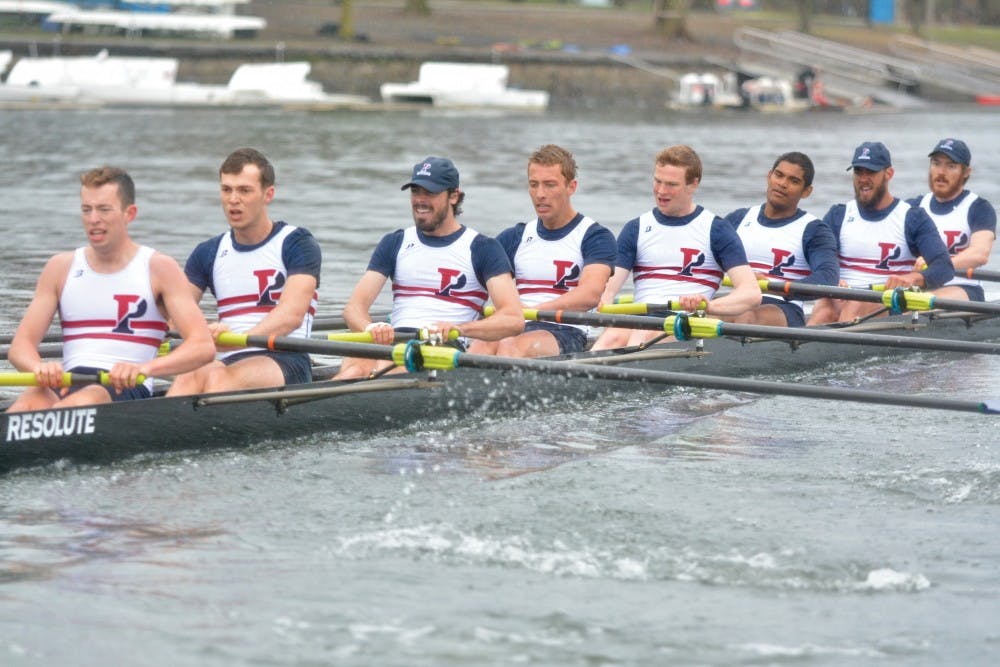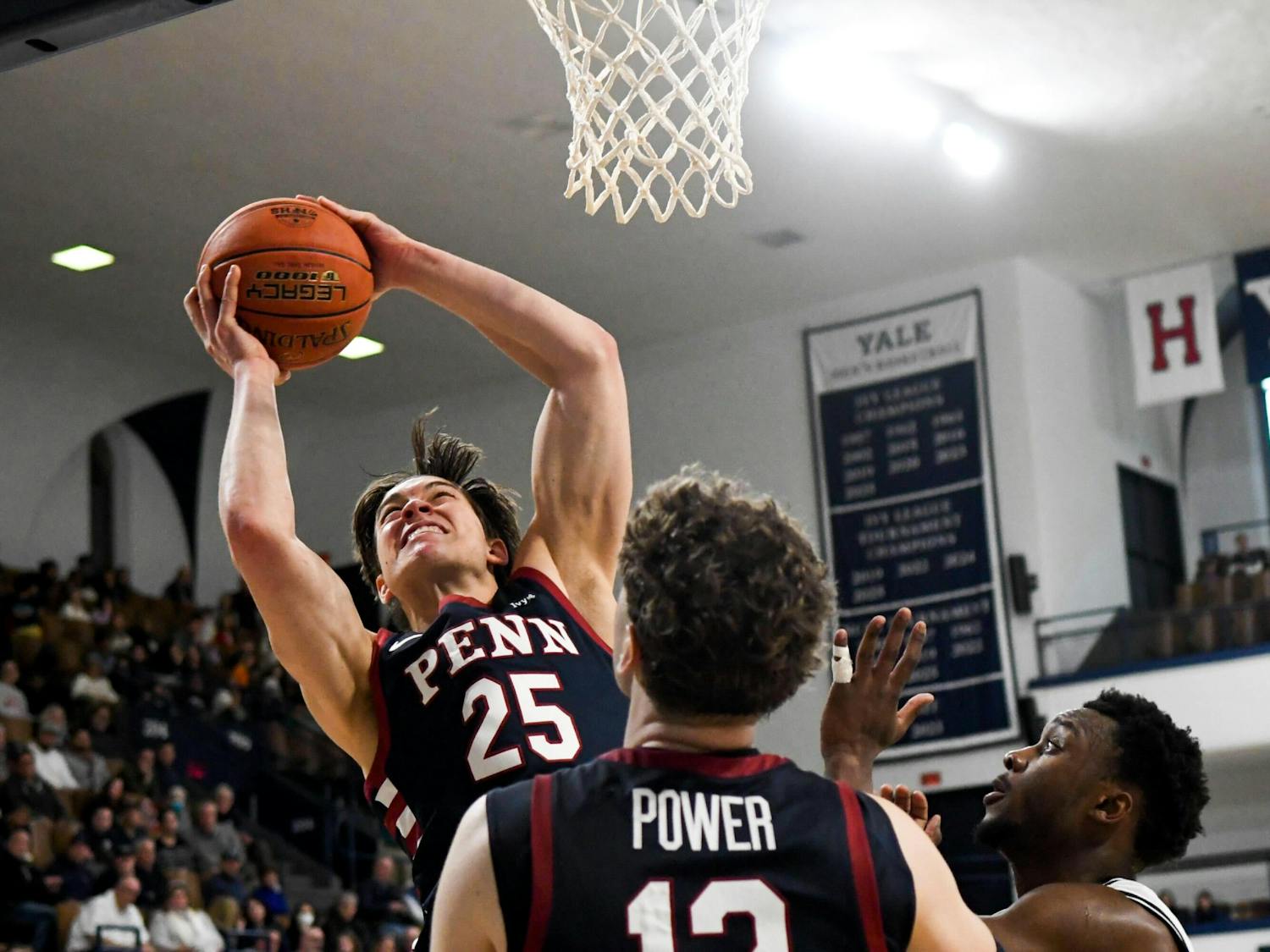
26.2 miles.
That's how long a marathon is. Now think about running one while being a Division I rower at an Ivy League school. For sophomore heavyweight rower Austin Stengle, that is a reality.
Stengle recently became interested in marathons with a little encouragement from his family, with his dad and other family members having experience in long-distance running.
“My dad is very much into it and he always wanted me to run one with him and I was never serious about into it until a couple months ago," Stengle said. "When he said that he wanted to run the NYC marathon with me — which is the big one and we all entered the lottery for it — I ended up doing charity for it but he entered and ended up winning a spot for it anyway.”
Stengle ran the New York City Marathon in November and finished with a time of 3 hours and 40 minutes. It was his first ever marathon.
The Wharton sophomore had to juggle training for the marathon and practicing for rowing, all while doing his school work.
“It was definitely very tricky at the beginning and at the end. I had to blend it all to really focus on one completely," Stengle said. "The days we had double practices … I wouldn’t run those days because I was getting a lot of cardio work at the double practices. School [and rowing practices are] always a constant, but adding running really wasn’t much of a difficulty."
RELATED:
Penn men's lightweight and heavyweight rowing come up short in weekend races
How do you study teamwork? For senior Ryan Leone, you measure brainwaves.
Stengle was actually able to use some of the rowing training techniques to help him prepare for the marathon.
“It's really good cardio. Both are very similar [because] your blood is pumping, it's constant engagement of pretty similar muscles," he said. "I started training last year around May and for rowing, we were also rowing for IRA [National Championships], so it was very easy for me to row and run at the same time."
There is, however, one major difference between the two sports — flexibility.
“A huge difference between the two is that running requires a lot more flexibility," Stengle said. "Especially coming at it as a rower, my legs are tight from years of using them, so running made me have to get a lot more flexible."
Even though most are not avid runners, Stengle's rowing teammates often accompanied him on training runs leading up to the race. In fact, one of his freshman teammates joined him during the Rocky Run, a 12-mile race throughout Philadelphia.
Another challenge for Stengle was the transition from the team sport of rowing to running, which is an individual endeavor.
“The biggest thing is that you don’t have that team mentality, you don’t have your teammates around you pushing forward," he said. "Running is a lot harder to continue on because it’s very easy to stop and say, 'I'm done,' and leave."
A goal for the sophomore is to qualify and earn a spot to run in the Boston Marathon in the near future.
“I think [the Boston Marathon] is the next level in terms of pure speed because there is a time-enter for it where you need to run another marathon or something similar to it to enter it. I think it's something that I want to do really soon," he said. "The NYC Marathon that I ran in [November] was more to just try it out and see how it went."
Stengle will need to cut down his marathon time by 40 seconds in order to qualify to run in the Boston Marathon in 2020. He may be a relatively inexperienced runner right now, but he has already competed on the big stage once and will keep training for the next time.









